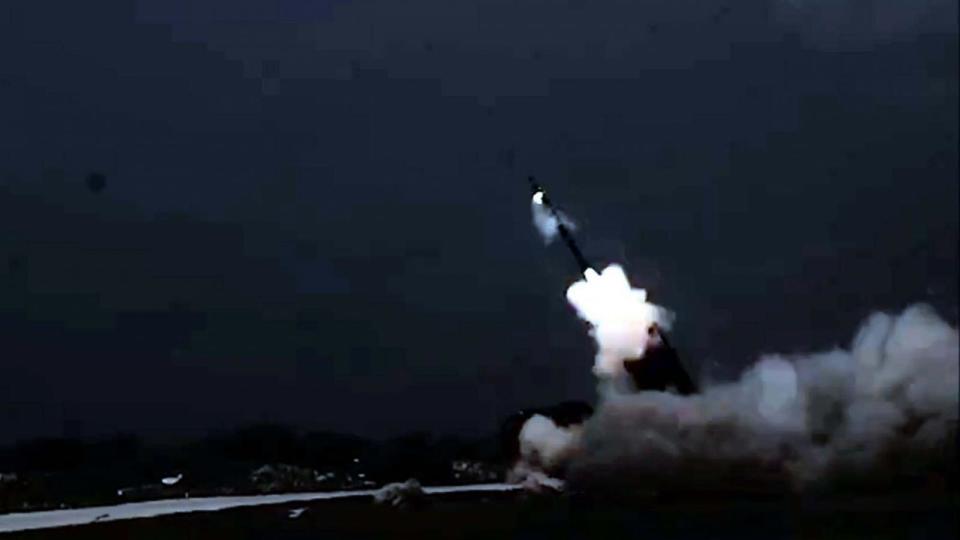What is happening between Iran and Pakistan?
An unprecedented turn of events took place between Iran and Pakistan this week when the neighboring nations exchanged cross-border airstrikes on what they claim were militant hideouts and safe havens being used against one another.
First, Iranian airstrikes targeted what Tehran described as bases for the Sunni separatist group Jaish al-Adl in southwestern Pakistan on Tuesday. At least two children were killed and three others were injured, according to the Pakistani Ministry of Foreign Affairs, which called the attack an "unprovoked violation of its airspace."
Then, Pakistani airstrikes targeted what Islamabad described as training camps belonging to Baluch insurgents in southeastern Iran on Thursday in retaliation for Tuesday's attack. At least nine people -- four children, three women and two men -- who were non-Iranian citizens were killed, according to Iranian Interior Minister Ahmad Vahidi, who condemned the strikes.
Tehran has accused Jaish al-Adl of carrying out attacks across the border inside Iran, alleging that Pakistan provides hideouts for the group and other militants known for high-profile attacks against the Iranian military -- claims which Islamabad denies.
Meanwhile, Baluch separatist groups such as the Balochistan Liberation Army and the Baluch Liberation Front have attacked law enforcement, government personnel and buildings in southwestern Pakistan's Baluchistan province. Islamabad has accused Tehran of giving them a safe haven across the border in Iran where they receive funding and training -- charges which Tehran denies.
Pakistani Foreign Minister Jalil Abbas Jilani spoke with Iranian Foreign Minister Hossein Amir-Abdollahian on Friday and the two "agreed to de-escalate the situation," noting that their countries have to maintain "mutual trust and cooperation," according to a statement from Pakistani Ministry of Foreign Affairs.
Relations between Pakistan, a Sunni majority country, and Iran, a Shia majority nation, have never been favorable with both blaming the other for using their minorities as proxies for their own benefits. Nevertheless, the neighbors have historically managed to maintain routine diplomatic, trade and military activities between them. There were even bilateral events taking place this week when Iran launched its airstrikes in Pakistan on Tuesday, forcing the meetings to be canceled.
MORE: Pakistan retaliates with strikes inside Iran

Ijaz Khan, an Islamabad-based researcher and the former head of the University of Peshawar's Department of International Relations, said this week's cross-border airstrikes are the first high-profile attacks to take place between the two countries and that bilateral ties "cannot go back" to how they were.
"Iran and Pakistan had differences in the past over a range of issues, but still they were able to keep their differences at a certain level and downplay them," Khan told ABC News in an interview Thursday. "It was never public expression of disagreement between them."
"For a long time, they were always suspicious of each other. Those suspicions will increase," he added. "The chances of reacting negatively against each other would be much more than before."
Pakistani-Iranian relations have taken a turn for the worse at a time when the wider region is already roiled by Israel's ongoing war with Iran-backed Palestinian militant group Hamas in the neighboring Gaza Strip. Since the war began last October, Yemen's Iran-backed Houthi rebels have repeatedly used drones and missiles to target commercial ships in the Red Sea and the Gulf of Aden, supposedly in support of Hamas and the scores of suffering Palestinian civilians in Gaza. The United States has since led large-scale retaliatory airstrikes against Houthi targets in Yemen.
"Iran restrained itself from jumping into it, but there was always fear that this may happen and this may escalate," Khan told ABC News. "A lot of realignment may take place in the region."
Now, Iran has simultaneously opened three fronts by striking Syria, Iraq and Pakistan within a week. Tehran conducted airstrikes in Iraq and Syria late Monday in response to a suicide bombing that killed more than 90 people earlier this month, for which the Sunni militant group Islamic State claimed responsibility. Regardless of whether this week's chain of events are connected to what's already happening in the Middle East, Khan warned that there will be "implications."
Khan said he and other regional analysts are "baffled" by Iran's recent decision-making and worry that further escalation on any of the fronts will trigger warfare.
"Before this, thinking of an open conflict between Iran and Pakistan was not a serious topic for discussion," Khan told ABC News. "But now, it cannot be ruled out. It can never be ruled out, even if they are able to contain the current thing from escalating."
"Even if it doesn't escalate physically," he added, "politically, it will."
What is happening between Iran and Pakistan? originally appeared on abcnews.go.com

 Yahoo News
Yahoo News 
